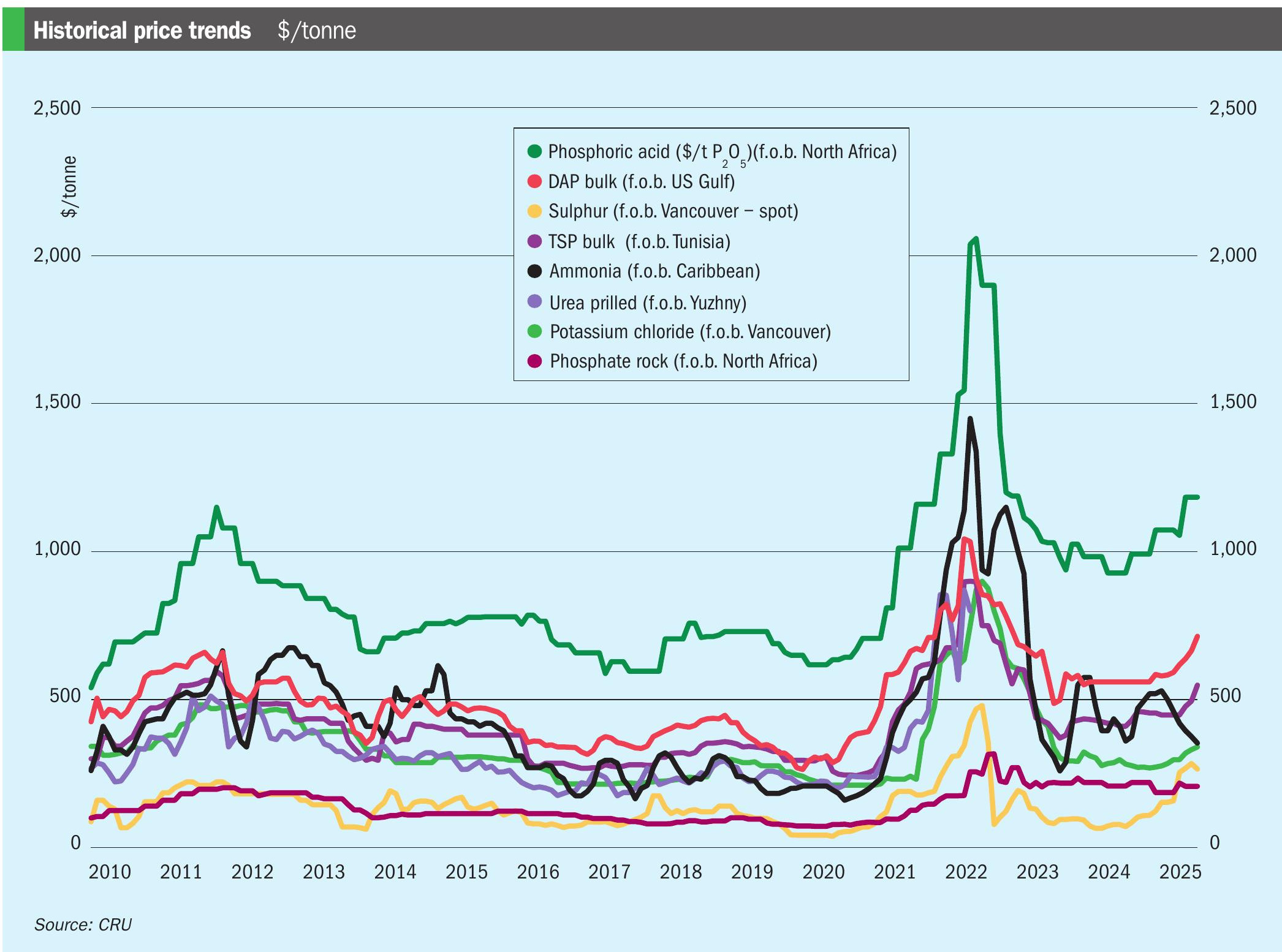Fertilizer International 498 Sept-Oct 2020

30 September 2020
Largest SOP producer in the western hemisphere

Compass Minerals manufactures potassium sulphate (SOP) products from two locations in North America.
Its market-leading Protassium+ granular SOP product is produced at the company’s plant near Ogden, Utah, from brine extracted from the Great Salt Lake using a natural solar evaporation process. Protassium+, a premium, low-chloride potassium fertilizer, is used in speciality agriculture, pharmaceutical and industrial applications. The Ogden operation also has the unique ability to supplement brine-based production by converting potassium chloride (MOP) into SOP.
Compass Minerals also produces high-analysis grades of water-soluble potassium sulphate – some with more than 99.7 percent purity – at its 40,000 ton capacity Wynyard plant at Big Quill Lake, Saskatchewan.
Utah and Saskatchewan operations
The company’s Utah operation is the largest primary SOP production site in the western hemisphere – and is one of only four large-scale operations globally that produce SOP from the solar evaporation of brine. Approximately 55,000 acres of solar evaporation ponds (see photo) produce SOP and other salts, including magnesium chloride, from the Great Salt Lake’s naturally-occurring brine.
Its other Wynyard, Saskatchewan, operation is Canada’s only SOP production plant. At this site, Compass Minerals creates SOP by combining sulphate-rich brines with externally-sourced MOP using ion exchange and glaserite processes. The resulting SOP is highly pure and is marketed as a speciality crop nutrient product and for non-agricultural speciality applications.
Investing for efficiency, increased capacity and growth
Targeted investments by Compass Minerals have expanded capacity and increased efficiency at its Utah SOP plant. These have included processing plant and evaporation pond upgrades. As a result, SOP production capacity has now increased to 550,000 tons. These investments have helped Compass Minerals to continue to supply growing North American SOP market demand and maintain its position as the consistent supplier of choice.
“Our manufacturing process is highly efficient and allows us to be positioned globally as a low cost producer.”
“As the only US producer and manufacturer of OMRI-certified [organic] sulphate of potash, we continue to leverage this unique asset accelerating capacity to meet market demand,” commented George Schuller Jr, chief operating officer at Compass Minerals.“Through solar evaporation at our Utah facility, our manufacturing process is highly efficient and allows us to be positioned globally as a low cost producer.”
Long-term SOP production at both Ogden and Wyngard looks secure. Compass Minerals holds the numerous environmental and mineral extraction permits, water rights, licenses and other government approvals needed to allow operations at both sites to continue well into the future.
Protassium+
Protassium+ provides speciality crops with the vital potassium they need for healthy growth, high yield and harvest quality. It also helps with crop stress and improves resistance to drought and disease. Other key characteristics are:
- High sulphur: Sulphur helps support plant functions that have a positive influence on yield, quality and marketability. Sulphur deficiency is also on the increase – highlighting the need to replenish this nutrient so crops can deliver more profitable returns.
- Low chloride: Many speciality crops, turf and ornamental plants are particularly chloride-sensitive. For these plants, continued application of potassium sources with a high chloride content or salt index is undesirable as they have a toxic effect. The use of Protassium+, in contrast, helps avoid the build-up of chloride or salt in soil that can result in lower yields, lower quality, poorer appearance and lost income.
- ow salt: SOP has the lowest salt index (per unit of K2 O) of all the major potassium sources. Because of this, Protassium+ is able to minimise the risk of soil toxicity.






